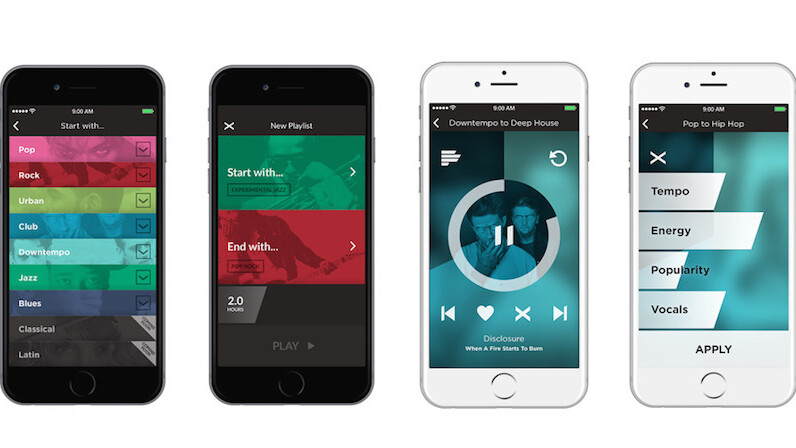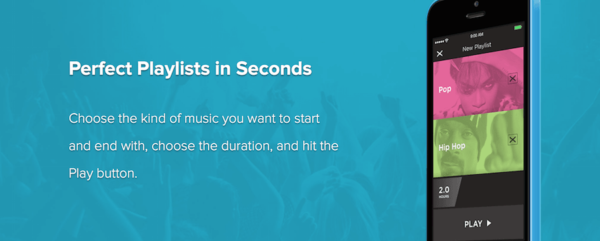
Machine-learning algorithms made possible by a combination of deep learning and artificial intelligence has dominated 2017. The dramatic rises in consumer expectation levels are also forcing businesses to simplify and personalize everything in a bid to remain relevant to their tech savvy customers.
We now have access to unlimited music to accompany us on our travels thanks to all-you-can eat packages offered by the likes of Apple Music and Spotify. However, discovery algorithms on these digital services could never replace the art of manually creating your playlist, or could they?
Music fans will have fond memories of the Nick Hornby book High Fidelity and the character played by John Cusack’s in the movie version where he stated the strict rules around creating the perfect mixtape: “You gotta kick it off with a killer, to grab attention. Then you gotta take it up a notch, but you don’t wanna blow your wad, so then you gotta cool it off a notch. There are a lot of rules.”
Many believe that these rules and skills passed down from DJ’s and mixtape creators have been lost in the digital transformation of music. Playlists are linear, meaning all the songs are very much the same (look up any high energy workout playlist for clear examples) or songs are themed, but there is no structure in them other than the theme (Hip Hop Playlists).
As a DJ you are not about playing hit after hit – psychologically that doesn’t work for a crowd. Because believe it or not – it’s very draining. Climax after climax is very exhausting. There are moments in a DJ set where the crowd needs a peak; then there are moments they need a rest and other moments they need just to dance. This mix and balance are tricky, but when the DJ gets it right, it’s magical.
However, a new app called Muru Music that was inspired by an Aboriginal Australian term for “journey” is claiming to be the first AI DJ Brain. Muru’s technology has translated a DJ brain into algorithms and rule sets, allowing users to generate playlists in a matter of seconds within any streaming service by selecting genres or artists as beginning and ending points.

Muru offers hundreds of strict rules and variations for each type of playlist. These complicated guidelines are different for each style of music and each moment. The development team has spent an incredibly long time converting the nuances of a DJ (which they do without thinking) into code.
With Muru, founder Nicc Johnson has developed A.I. and Algorithms that think in the same way. It’s okay to play an obscure song after a hit, and it’s good to drop the tempo after an intense track, and of course, with 30 million songs, there is no need to repeat an artist in the same playlist journey.
The ultimate aim for Muru is to create the perfect balance between your taste and what you know, with the unknown and the serendipity. – Muru and chief musicologist Nicc Johnson
Setting it apart as a true AI, capable of learning and adapting through interaction, users can tweak the playlist to evolve in real time to adjust the parameters of energy, era, and popularity. The approach is streamlined but equally intuitive, yet reflects years of serious thinking into how we relate and move to music.
Many smaller venues are now using streaming services because it gives them greater control. But now they face the same problems as the everyday consumer and the first world problem of spending hours a week trying to update a playlist or using a curated playlist.
When I spoke to the founder of Muru and chief musicologist Nicc Johnson on my podcast, he advised “The biggest pain point I found, when consulting these venues, was that they had very little control over their music. Most background music services provide static playlists that get updated with a few songs every couple of weeks.”
You might find this same playlist down the road at the next bar, you couldn’t modify it (in some cases you could hit shuffle), and the music was repetitive – which is a particularly big problem when trying to keep staff motivated. In some cases, staff could tell the time of day, or how long they had left on their shift, just by the song that was playing.
Every day the venue gets new music, within the templates they have easily programmed themselves. The staff never gets bored, you have your unique sound for your business, taking advantage of the 30 million songs and having the ability to control the music in a matter of seconds.
With Muru, a venue will be able to create a music template that will keep playing the full duration that venue is open and the playlist will also evolve on the fly. For this reason alone, I suspect anyone that has worked in a venue or retail outlets will probably think that this new concept is music to their ears.
Whether you are curating a music playlist for your commute to work, house party or even for a small venue, it seems that an AI driven DJ might be able to make the process a little easier and even offer a more eclectic mix too.
Get the TNW newsletter
Get the most important tech news in your inbox each week.




